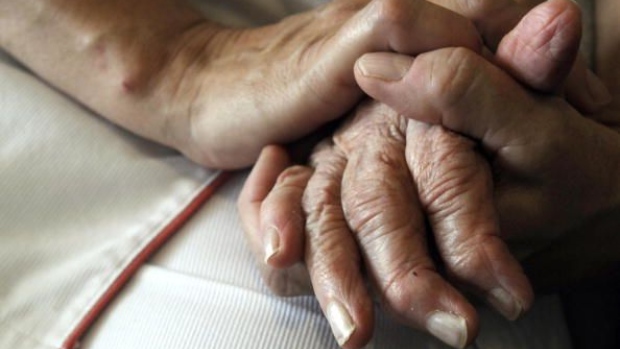Nov 30, 2022
Alzheimer’s Doctors Settle for Drugs With Modest Benefits as Magic Bullets Elusive
, Bloomberg News

(Bloomberg) -- Eli Lilly & Co. on Wednesday presented promising results on another experimental Alzheimer’s drug -- just a day after rival Eisai Co. reported data on a treatment that looks poised to become the first therapy to unambiguously slow the brain disease.
In a study of 148 early Alzheimer’s patients, Lilly reported that donanemab lowered levels of a bad protein in the brain called amyloid by 65% after six months of treatment. In nearly 38% of the patients, amyloid that had built up for years was fully cleared in that period, according to results presented at the Clinical Trials on Alzheimer’s Disease conference in San Francisco.
Donanemab is emerging as the main potential competitor to Eisai’s and Biogen Inc.’s lecanemab. Japan’s Eisai presented phase 3 results for its drug at the same conference on Tuesday. In that trial, 68% of patients were amyloid free after 18 months of treatment. That resulted in a modest 27% slowing of mental decline over an 18-month period, using a common rating scale. Side effects included brain swelling and brain bleeding.
While the results aren’t spectacular, there was a sense of relief at the meeting that drugs are finally starting to work, albeit modestly, after so many years of failure.
“We are moving in the right direction,” said Donna Wilcock, a neuroscientist at the University of Kentucky and editor of the journal Alzheimer’s & Dementia.
While amyloid-lowering drugs clearly aren’t going to be a magic bullet and have real risks, she said, researchers are learning from past failures to devise more potent agents and better trials.
Promising Sign
The Lilly results don’t prove that the drug will reduce cognitive decline. But it’s still a promising sign that the drug is doing what it is supposed to do.
That’s been a problem with previous drugs that turned out not to lower amyloid as much as expected.
In a 2021 phase 2 trial, Lilly’s donanemab modestly slowed cognitive decline, joining Eisai’s drug as one of the only clearly successful results from amyloid-lowering agents. A phase 3 trial is ongoing and expected to be complete by mid-2023.
Researchers at the conference discussed why many amyloid-lowering agents had failed in the past. One reason may be that a certain amount of amyloid must be removed before any effect on cognition is seen. Previous agents may not have removed enough, or not done so quickly enough.
Also on Wednesday, Roche Holding AG reported that its experimental Alzheimer’s treatment gantenerumab reduced amyloid to a targeted level in only about a quarter of the patients.
“What the field is getting is that robust amyloid lowering is required to slow progression,” said Anne White, a Lilly executive vice president who leads the company’s neuroscience division. “If you have minimal amyloid lowering, you are going to see mixed results.”
Seeking Approval
Both Lilly and Eisai have applied for accelerated US approval for their drugs based on amyloid lowering. Lilly is hopeful donanemab will be as potent as anything else out there in removing amyloid. In the trial reported Wednesday, donanemab was compared with Biogen’s Aduhlem, the first amyloid-lowering drug to receive US approval. It was far more potent at clearing amyloid.
Lilly thinks its drug could have some practical advantages over lecanemab. The Lilly drug is only given once a month, compared with biweekly for lecanemab. And in its phase 3 trial, Lilly is evaluating whether patients can stop treatment after amyloid is fully removed from their brains.
--With assistance from Naomi Kresge.
(Updates with Roche drug finding in 11th paragraph.)
©2022 Bloomberg L.P.


